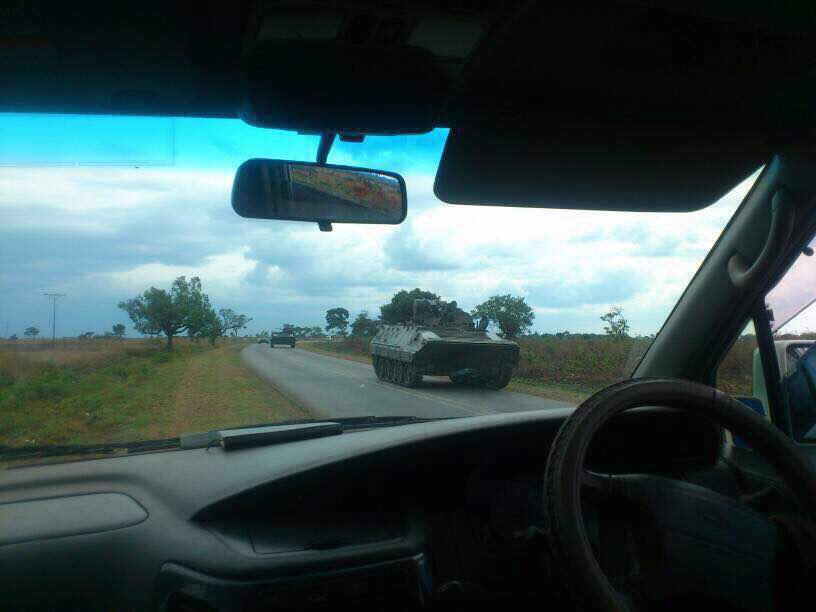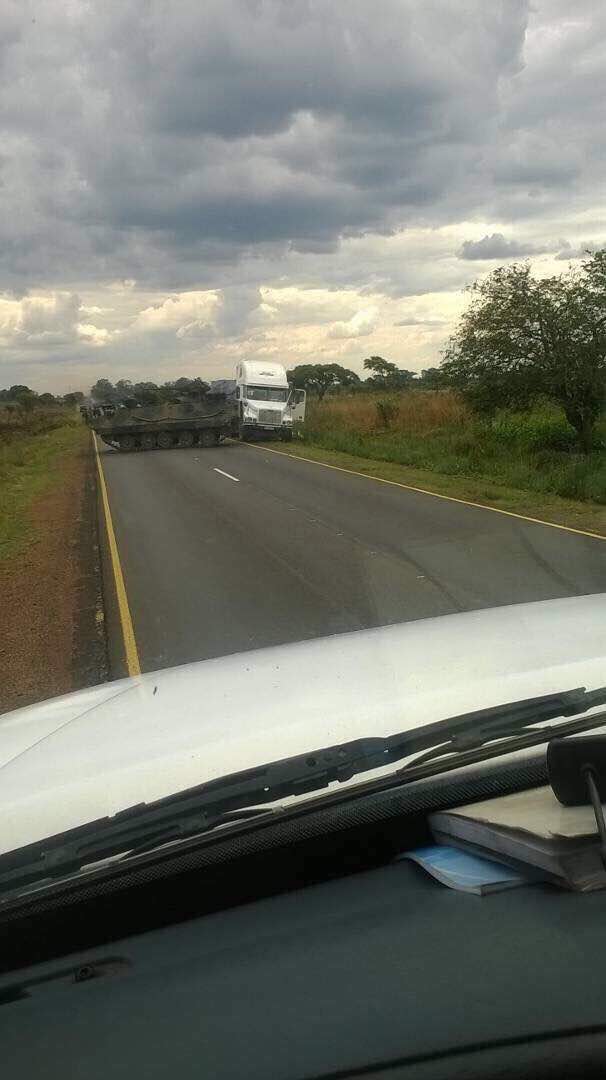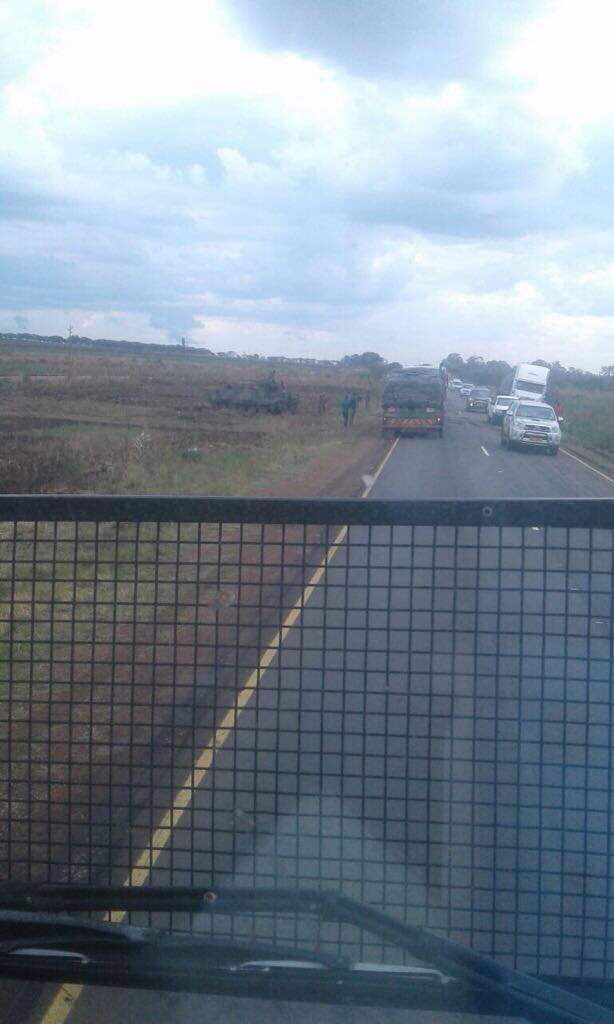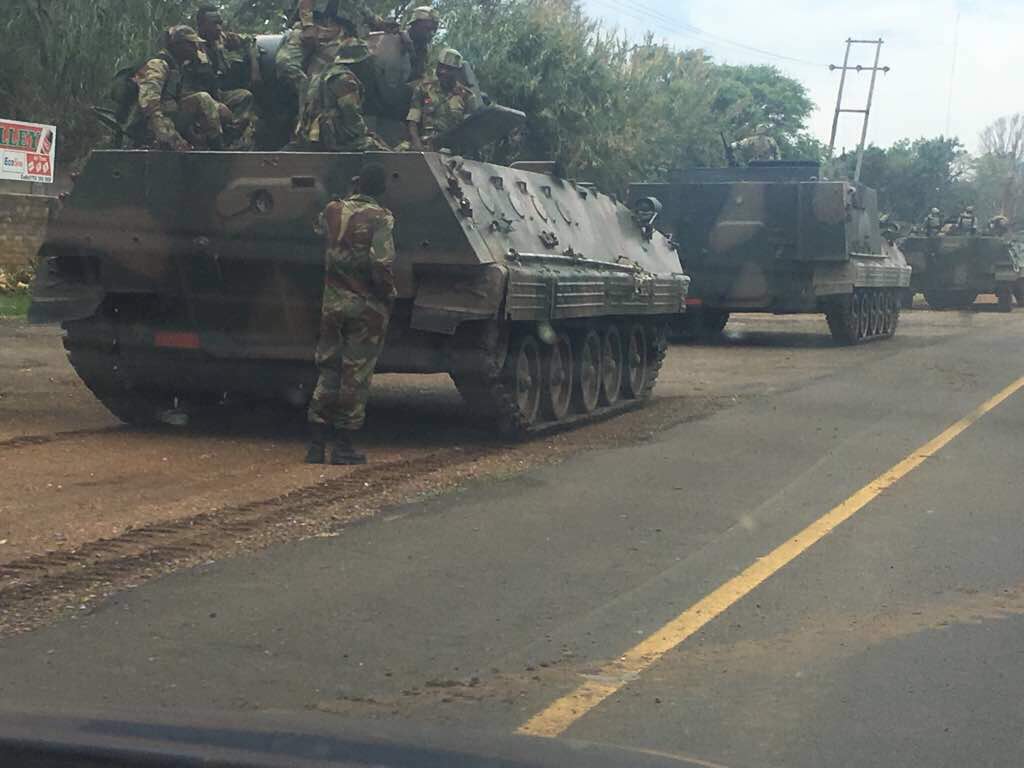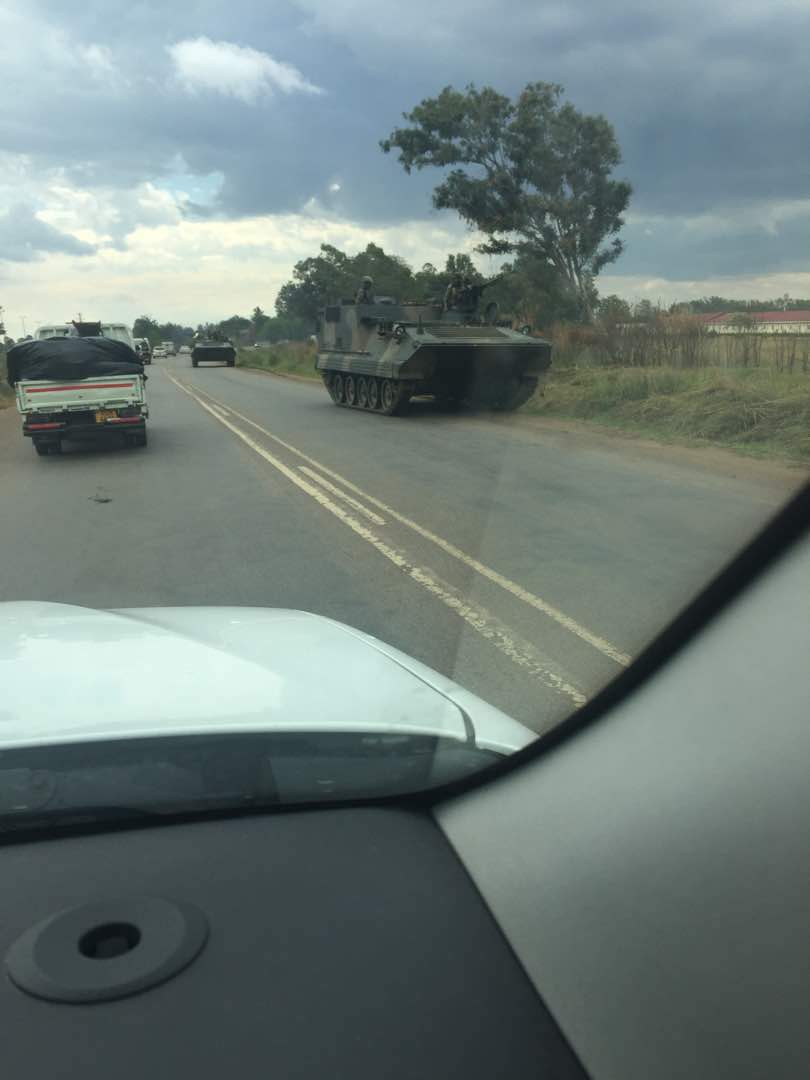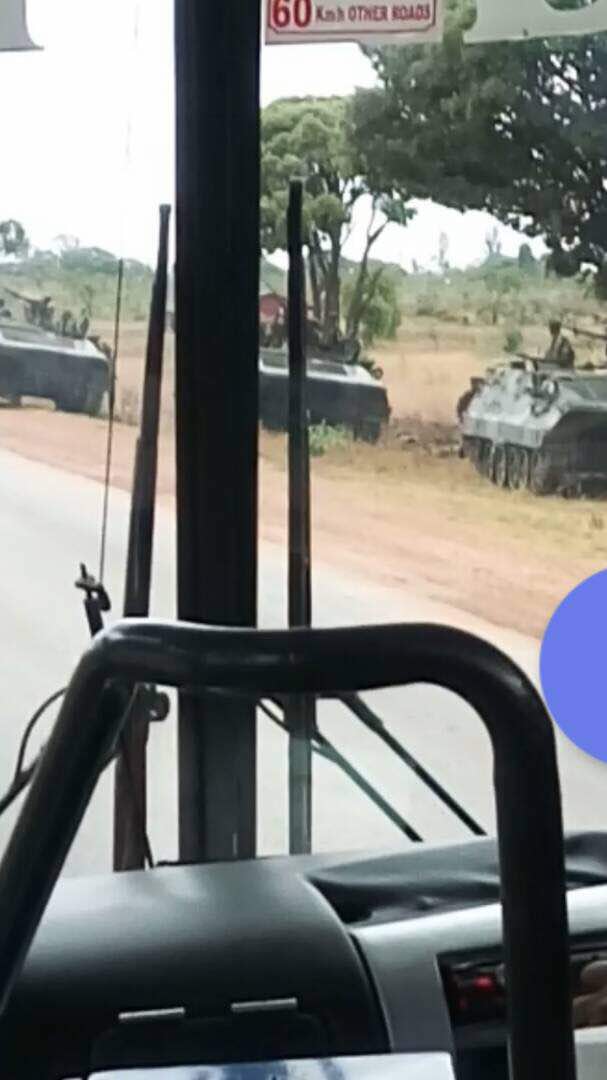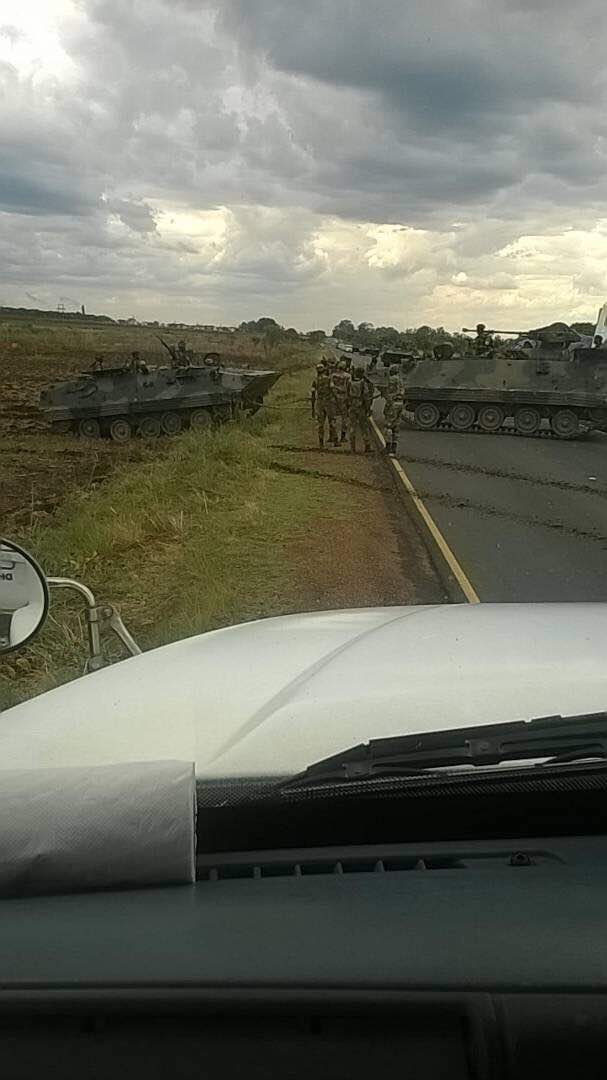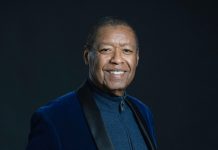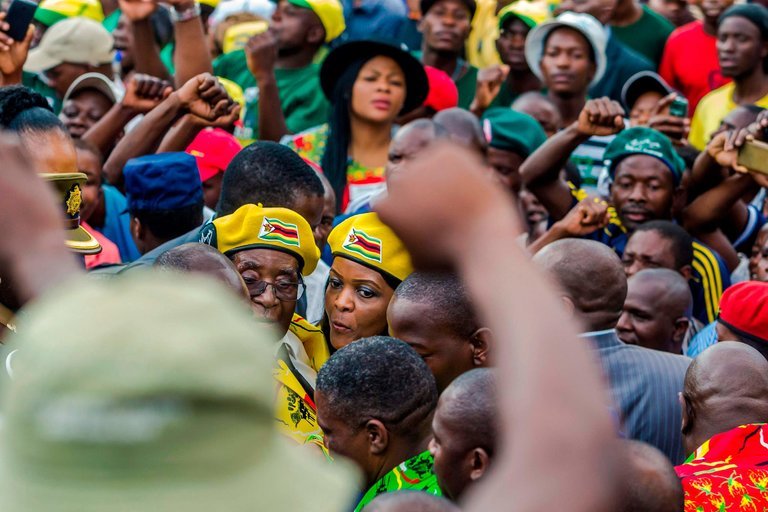
Zimbabwe’s military said early Wednesday, November 15, 2017 that it had taken custody of President Robert Mugabe, the world’s oldest head of state and one of Africa’s longest-serving leaders, in what increasingly appeared to be a military takeover in the southern African nation.
After apparently seizing the state broadcaster, ZBC, two uniformed officers said in a short predawn announcement that “the situation in our country has moved to another level.” While denying that the military had seized power, they said that Mr. Mugabe and his family “are safe and sound, and their security is guaranteed.”
“We are only targeting criminals around him who are committing crimes that are causing social and economic suffering in the country in order to bring them to justice,” said the main speaker, who was identified as Maj. Gen. S. B. Moyo, the army’s chief of staff.
General Moyo — who was not widely known to the public but who was considered close to the commander of the Zimbabwe Defense Forces, Gen. Constantine Chiwenga — warned that “any provocation will be met with an appropriate response.”
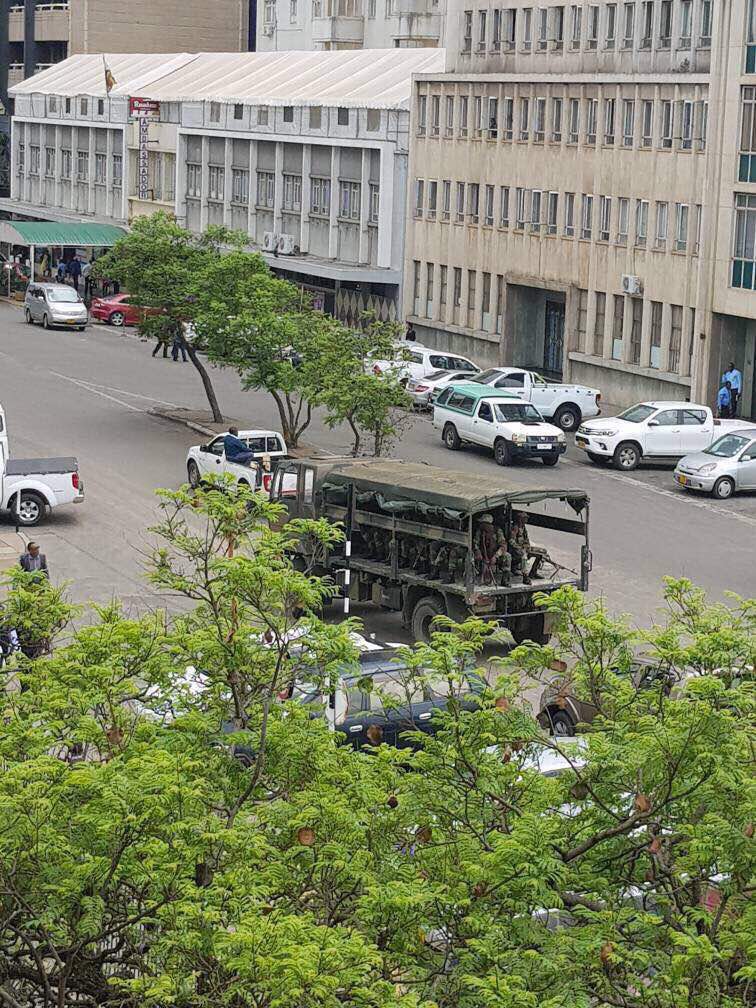
Around 6 a.m. on Wednesday, taxis were running on the main roads leading to central Harare and people seemed to be making their way to work. Some soldiers could be seen on the main roads but were not stopping commuters.
After the short announcement, commercials on farming and corn seeds appeared on the state broadcaster. There was no further clarification of the whereabouts or status of Mr. Mugabe, 93, who is the only leader his nation has known since independence in 1980.
Due to ongoing uncertainty in Zimbabwe, the U.S. Embassy in Harare will be minimally staffed and closed to the public on November 15. Embassy personnel will continue to monitor the situation closely. @StateDept
— U.S. Embassy Zimbabwe (@USEmbZim) November 15, 2017
Due to the uncertain situation in Harare, incl. reports of unusual military activity, we advise British nationals in the city to stay safely at home/indoors until the situation becomes clearer. Monitor this account for updates.
— UKinZimbabwe (@UKinZimbabwe) November 15, 2017
Asked in a brief telephone interview about reports of a possible coup, the country’s information minister, Simon Khaya Moyo, said, “What can I say? I don’t know about that.” He did not elaborate.
The television announcement came after a long night of rumors and sketchy reports in Harare that a coup might be underway. The day before, in a remarkable act of defiance, General Chiwenga had warned that “when it comes to matters of protecting our revolution, the military will not hesitate to step in.”
General Chiwenga was considered close to Vice President Emmerson Mnangagwa, whom Mr. Mugabe summarily expelled from the government and the governing ZANU-PF party last week. The move was widely seen as clearing the path for Mr. Mugabe’s wife, Grace, 52, who had been amassing growing political power in the past two years as her aging husband’s health declined visibly.
Since his removal, the whereabouts of Mr. Mnangagwa, who like Mr. Mugabe was a veteran of the country’s struggle for independence, has been shrouded in mystery.
Click on any image to enlarge.
Read more at New York Times

